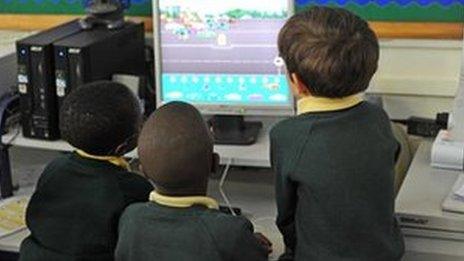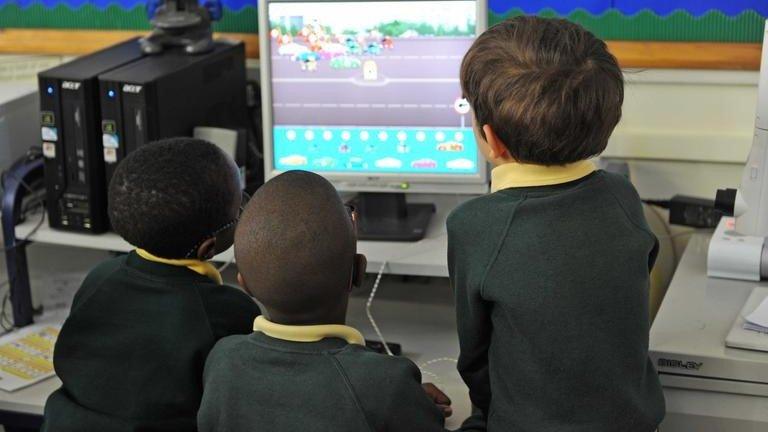Teachers call for boycott of tests for four year olds
- Published

The conference warned against a testing culture in infant school
Teachers have moved nearer a boycott of tests for four-year-old pupils, set to be introduced in England's primary schools in 2016.
The National Union of Teachers' conference has heard warnings that such tests will create a "feeling of failure in children and pressure on parents".
Delegates argued that young children learn best through play.
The Department for Education says it will be a "proper measure of progress from when children start school".
The NUT conference in Brighton voted to "investigate the possibility of a mass campaign of principled non-compliance with any policies that erode children's right to play in the early years".
This opposes the baseline assessment tests which the government wants to introduce as the starting point for measuring progress through primary school.
Speaking ahead of the debate, Ros McNeil, the union's head of education and equalities, argued that the tests would focus on things that are easy to measure, such as the ability to count up to 10 and will force schools to push children into formal learning too early.
Building blocks
She said research suggested that this is "developmentally damaging".
Most schools in England already assess reception children on entry to school, but these tests will formalise that.
The tests would be carried out in the first few weeks of the autumn term and will focus on some of the key building blocks of learning, such as counting and picture and letter and number recognition.
Hazel Danson, a primary teacher from Huddersfield, said ministers were displaying a "fundamental lack of understanding" about how very young children learn.
Play activities using sand and water or allowing children to use bikes and play outside helps them develop physical skills and co-ordination which are vital when they are asked to hold a pen, Ms Danson argued.
"It looks like they are just messing about. It is not formalised in any way - but they are learning."
She said there was frustration among teachers that the government "will not listen to the wealth of evidence out there".
She added that this was likely to result in "a groundswell of non-compliance" among early years teachers.
She urged the union to "pro-actively look for ways of preventing our members being a position where they damage children".
NUT General Secretary Christine Blower said: "We need to be inspiring young children not making them afraid or bored through a task-orientated curriculum which simply stultifies the learning process.
"Being confident, independent and curious is as important as cognitive and academic skills and must be defined in the light of children's diverse abilities."
The government said it was working with teachers to improve standards in primary schools and introduce a proper measure of progress from when children start school to age 11.
A Department for Education spokeswoman said: "Schools will be held to account either for ensuring all children make sufficient progress from reception to the end of primary school, or for ensuring at least 85% achieve the expected level in reading, writing and maths.
"We want to see all children leaving primary school with a good standard of reading, writing and maths so that they can thrive at secondary school."
- Published27 March 2014

- Published12 September 2013

- Published19 April 2014

- Published20 April 2014
